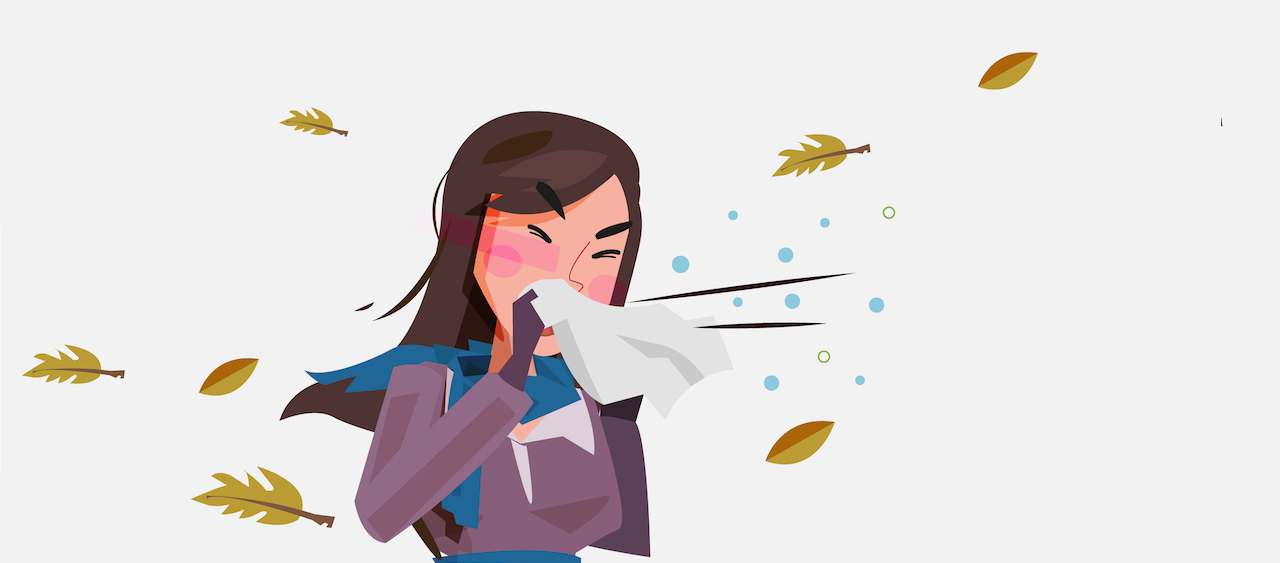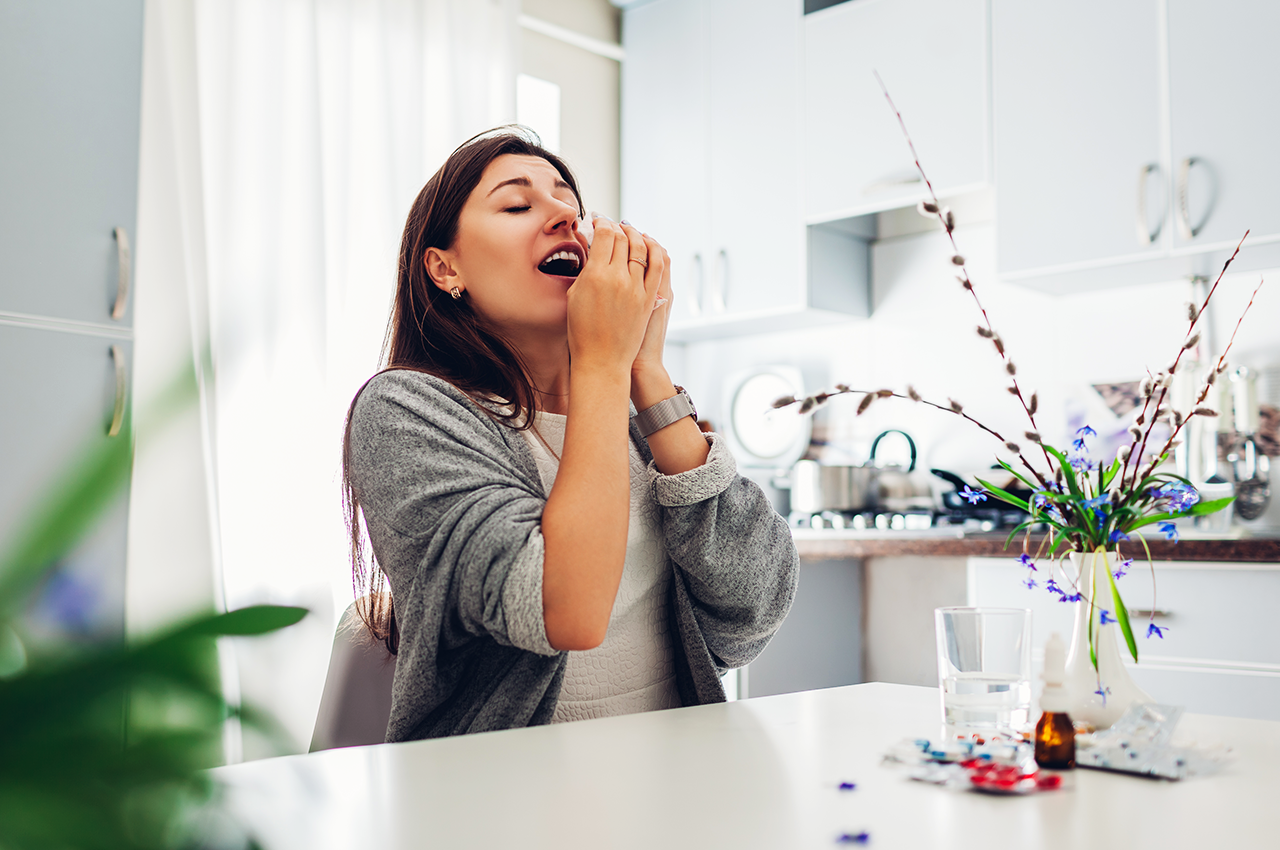Everyone sneezes. In fact, the average healthy person does so up to four times a day. But why, exactly, do we sneeze?
The mechanics of sneezing
Part of your nose’s job is to make sure the air you breathe is clean, and free of dirt and bacteria. Your nose traps dirt and bacteria in mucus, but sometimes debris can enter your nose and irritate the sensitive mucus membranes inside your nose and throat.
When these membranes become irritated, a message is sent to your brain to sneeze. Sneezing is your body’s way of removing an irritation from your nose.
Your brain then sends a message to the muscles involved in creating a sneeze, including the muscles in your abdomen, chest, diaphragm, and throat. These muscles have to work together, and in the right order to send the irritation out of your nose.
Before you sneeze, you take a deep breath and hold it. The muscles in your chest tighten, and the pressure of air in your lungs increases. Your eyes close, your tongue presses against the roof of your mouth, and suddenly your breath comes out quickly through your nose.
“Achooo!”-triggers
Common causes of sneezing include:
- Allergens like pollen, dust and animal dander.
- Viruses like the common cold or flu.
- Environmental irritants like smoke, pollution and mould.
Injury inside your nose, and breathing cold air can also irritate the inside of your nose and set off a sneeze.
Stop the sneeze
- Avoid your sneeze triggers. Make simple changes in your home to reduce your exposure to irritants. Open the windows and doors to improve indoor ventilation, or get an air filtration system to clean the air in your home. Vacuum and mop up regularly to get rid of dust. Wash your bed sheets and other linens in hot water to kill dust mites. If you have pets that shed, cut their hair or remove them from your home.
- If an allergy is causing you to sneeze, avoid it. Ask your doctor to help you recognise the allergen and how to treat the cause. Over-the-counter and prescription medications antihistamines may help to relieve your symptoms. If you have severe allergies, your doctor may recommend allergy shots. These contain the extracts of purified allergens. Exposing your body to allergens can help keep your body from reacting to allergens in the future.
- If you have an infection like the common cold or flu, use a nasal spray to help relieve a congested or runny nose. Nasal sprays that have a corticosteroid in them can reduce inflammation in your nasal passages and decrease the likelihood of sneezing. To speed up your recovery and put an end to sneezing, take an antiviral medication, rest up and drink lots of fluids.
Is sneezing healthy?
It may be annoying, but sneezing is good for you. It’s an important part of your immune process, and helps protect your body against bacteria and viruses. So, the next time you feel a sneeze coming on, let it out. It’s your body’s way of keeping you safe.
Holding in a sneeze can be dangerous. A sneeze is so powerful that keeping it in can rupture your eardrums, cause your nose to bleed, or damage the blood vessels in your eyes and brain.
Fun facts about sneezing
- A sneeze can travel about 160 km per hour. That’s faster than your car!
- You can’t sneeze with your eyes open. When your brain receives the signal to sneeze, it also signals your eyes to automatically close.
- You can’t sneeze in your sleep. While you’re sleeping, the nerves involved in sneezing are resting too.
- Your heart doesn’t stop when you sneeze. When you sneeze, the pressure in your chest changes and alters your blood flow. This can change the rhythm of your heartbeat, but doesn’t cause your heart to stop.
- The longest sneezing spree ever recorded lasted a total of 978 days. The record was set by Donna Griffiths of Worcestershire, England, who sneezed continuously from 13 January 1981 until 16 September 1983.




